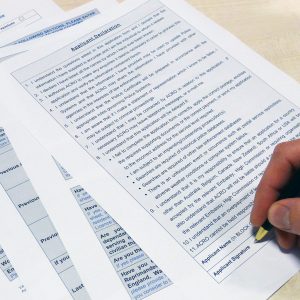Types of insurance documents for translation
Insurance documents requiring translation can be roughly divided into two groups.
The first refers to individuals and is issued to citizens for private use. Examples of such documents are insurance contracts for motor third party liability, life, health, personal property. For vouchers abroad, insurance is also required.
The latter are issued to legal entities and serve to support commercial or charitable activities. Examples include insurance of products, goods, transported goods, insurance coverage.
Each type of document has its own characteristics, each uses special terminology and each serves a specific purpose.
Features of translation of insurance documents
The global insurance market is growing and expanding. Today you cannot go on a trip without insuring your life, and you cannot act as a tour operator without insuring your liability. In a constantly evolving field of law, accurate and unambiguous translation is a guarantee that there are no legal claims.
Insurance translation is complicated by:
The degree of responsibility. Any misunderstanding, slight inaccuracy or ambiguously interpreted expression can serve as a basis and argument in a legal process;
Terminology. The development of the insurance industry affects equally the complexity of translation. Terminology is replenished with new lexical units and requires the continuous development of the skills of the translator himself;
The need for orientation in various fields. Life insurance is associated with the listing of insured events, health insurance – with the listing of diseases, equipment insurance – with the names of faults and other technical details. The translator is required to understand not only the legal basis of insurance, but also related and sometimes radically opposite areas.
Terminology and gaps in the vocabulary of translation of insurance documents
Speaking about the special terminology of insurance transfers, it is necessary to dwell in more detail on various aspects of this issue. The training of legal translators has a specific focus. Despite the seeming simplicity of the humanitarian direction, insurance transfers are especially difficult.
Insurance terminology evolves with the industry. In order to do his job with high quality, the translator must constantly learn and improve his qualifications.
Why is this necessary?
Legal, including insurance, terms in different languages may have different meanings. The specialist is required to know the subtleties and thoroughly accurate translation.
Some foreign lexical expressions and terms have no analogues in Russian. In this case, the translator will have to apply his knowledge in the insurance industry to find a suitable replacement in Russian. Conceptual spaces (this is what untranslatable words and expressions are called) can be replaced with a literal translation with a commentary by the performer.
Different legal systems use different language. Translation of insurance documents will require legal knowledge of international law. Finding the equivalent in a dictionary is not always the answer. Specialized sources can contain several translation options. The specialist will need to be able to find the most adequate insurance term from the proposed ones.
In cases where a literal or exact translation is not possible, the specialist performs the so-called contextual translation. This means that lexical units are selected based on the context, and for a better understanding, the final text is accompanied by explanations. This is the only way to avoid discrepancies and the emergence of problems that are associated with it.
the specialist performs the so-called contextual translation. This means that lexical units are selected based on the context, and for a better understanding, the final text is accompanied by explanations. This is the only way to avoid discrepancies and the emergence of problems that are associated with it.
It is interesting to note that insurance contracts in different countries are drawn up according to different rules. So, in Great Britain the practice has formed property insurance according to the principle “everything that is not excluded is insured”. In Germany, the same practice has developed according to the principle “what is listed is insured”. It is obvious that knowledge of such subtleties is a guarantee of quality work.
From the above, we can conclude that the translator of insurance documents should be comprehensively developed.
For a high-quality translation, a specialist will need knowledge in:
general jurisprudence;
insurance;
linguistics;
international law;
medicine;
equipment (for insurance of equipment or cars).
Indeed, translation of insurance documents, like other legal acts, can only be done by highly qualified specialists who are ready for constant self-improvement and development.

